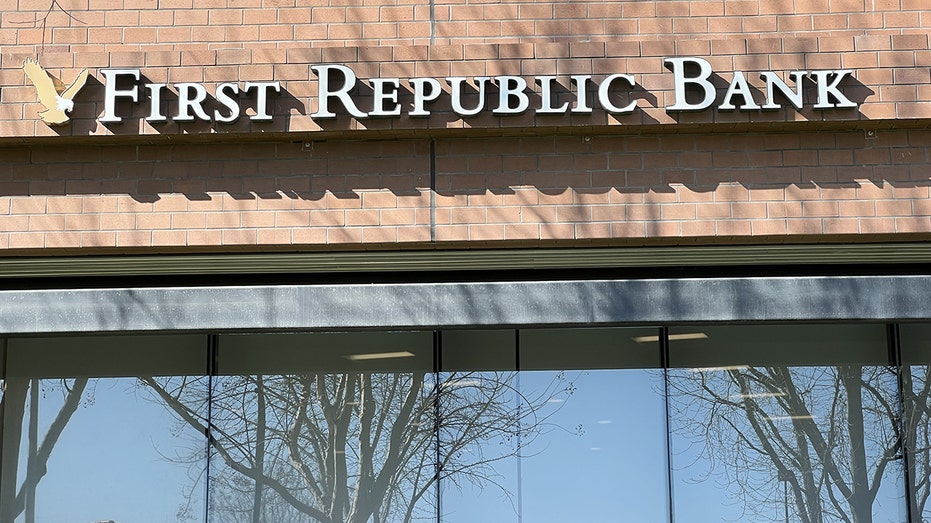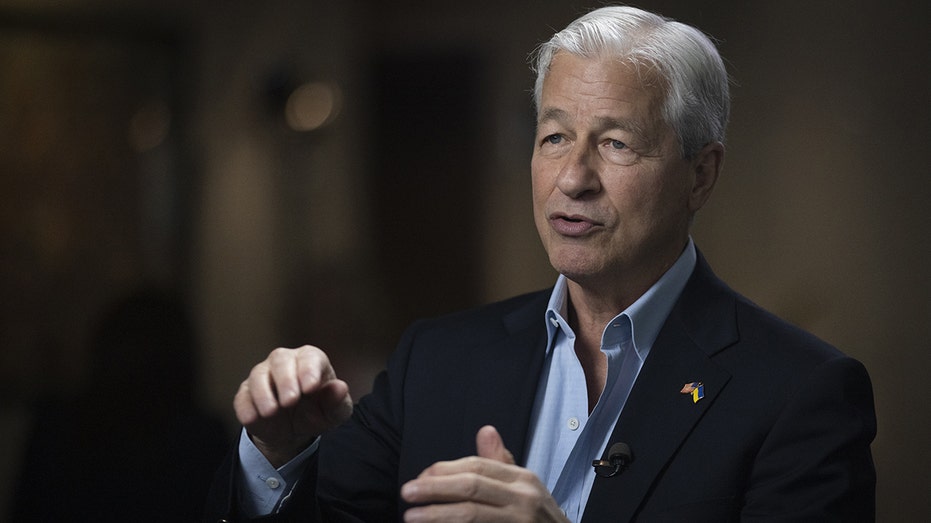Jamie Dimon leading efforts for new First Republic Bank rescue plan
Big bank CEOs weighing possible capital infusion in San Francisco-based lender
Regulators likely played 'behind the scenes' role in First Republic's big bank bailout
The Wall Street Journal chief economics correspondent Nick Timiraos discusses the macro impact from America's biggest banks bailing out First Republic Bank.
JPMorgan Chase CEO Jamie Dimon is reportedly spearheading talks with the chief executives of other big banks about new efforts to stabilize the imperiled First Republic Bank.
The Wall Street Journal reported on Monday that the banks are considering directly investing in First Republic to boost its capital. Other options include a sale or outside capital injection, according to the Journal, citing people familiar with the matter.
Eleven of the nation's biggest banks – including JPMorgan – joined forces last week to rescue First Republic Bank with a $30 billion deposit, a move intended to shore up the beleaguered San Francisco lender amid fears of a broader financial crisis.
As part of the deal, JPMorgan Chase, Citigroup, Bank of America and Wells Fargo will each contribute $5 billion; Goldman Sachs and Morgan Stanley will deposit about $2.5 billion each, according to a news release from the banks. Truist, PNC, U.S. Bancorp, State Street and Bank of New York Mellon will provide about $1 billion apiece.
ONE YEAR INTO ITS INFLATION FIGHT, THE FED FACES MURKY FUTURE

A First Republic Bank branch in San Ramon, California, on March 16, 2023. (Smith Collection / Gado / Getty Images / Getty Images)
Another option floated by Dimon to keep First Republic solvent could involve the banks converting some or all of the $30 billion in deposits into a capital infusion, according to the Journal.
"This action by America’s largest banks reflects their confidence in First Republic and in banks of all sizes, and it demonstrates their overall commitment to helping banks serve their customers and communities," the group said in a joint statement.
Federal regulators lauded the move, which came after several brutal and volatile days for First Republic shares.
There is mounting investor pressure on First Republic to take action. The lender saw its shares plummet about 47% during trading on Monday, leading losses among regional banks. The stock – which hovered around $115 per share on March 8 – fell to about $12 per share on Monday, the lowest level in a decade and down about 90% from one month ago.
SILICON VALLEY BANK RECKLESS WITH RISK, ESG PUSH: STATE FINANCIAL OFFICERS
S&P cut the bank's credit rating three notches to B+ from BB+ on Sunday and warned that another downgrade is possible.

Jamie Dimon, chairman and CEO of JPMorgan Chase (Marco Bello / Bloomberg via Getty Images / File / Getty Images)
Customers yanked billions in deposits out of First Republic last week, prompting the bank to shore up its finances with additional funding from the Federal Reserve and JPMorgan. That first cash infusion gave the bank – which boasts $213 billion in assets – roughly $70 billion in unused liquidity.
The concerns at First Republic and other midsize regional banks began after the historic failure of Silicon Valley Bank – the 16th largest lender in the country – this month following a liquidity crunch. It marked the largest U.S. bank failure since the global financial crisis in 2008.
CLICK HERE TO GET THE FOX BUSINESS APP
SVB, which largely catered to tech companies, venture capital firms and high net-worth individuals, saw a huge boom in deposits during the pandemic, with its assets surging from $56 billion in June 2018 to $212 billion in March 2023. The bank responded by investing a large chunk of that cash into long-term U.S. Treasury bonds and other mortgage-backed securities. However, that strategy backfired when the Fed embarked on the most aggressive interest-rate hike campaign since the 1980s, and the value of those securities tumbled.
That coincided with a decline in available funding for start-ups, which started drawing down more of their money to cover their expenses, forcing the lender to sell part of its bond holds at a steep $1.8 billion loss. When depositors realized that SVB was in a precarious financial situation, a bank run ensued.





















